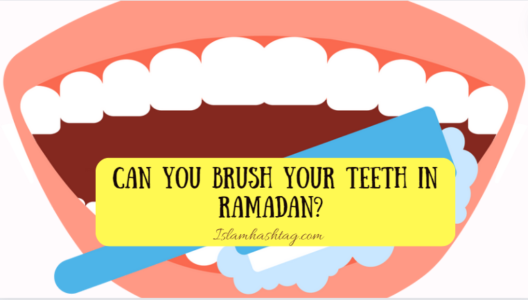
Can You Brush Your Teeth In Ramadan?

Can you brush your teeth in Ramadan?
What Are the Guidelines for Oral Care During Fasting in Ramadan?
As Muslims around the world prepare to observe Ramadan, a month of fasting, prayer, and spiritual reflection, it’s essential to understand the guidelines for oral care during this sacred time. Fasting from dawn until sunset means refraining not only from food and drink but also from certain activities that could potentially invalidate the fast. Let’s explore the guidelines for maintaining oral hygiene while fasting in Ramadan.
1. Brushing Teeth:
One of the most common questions that arise during Ramadan is whether it’s permissible to brush teeth while fasting. The consensus among scholars is that brushing teeth with toothpaste is allowed during fasting as long as precautions are taken not to swallow any of the paste. However, using a miswak (a teeth-cleaning twig) is highly recommended and holds more significance in Islamic tradition. It’s considered Sunnah to use a miswak, especially before prayers and upon waking up in the morning.
Let’s explore the Islamic rulings regarding brushing teeth during Ramadan:

- According to the Hanafi Fiqh, it is not recommended to use a toothbrush and toothpaste while fasting. Instead, one should use a Miswaak (a traditional teeth-cleaning twig). If someone accidentally uses toothpaste but doesn’t swallow it, their fast remains valid. However, it is better to avoid using toothpaste during fasting in the future1.
- Another perspective is that it is permissible to brush your teeth with toothpaste during Ramadan, as long as you are careful not to swallow the paste. This view emphasizes maintaining oral hygiene while fasting2.
- In the Hanbali Fiqh, using toothpaste during fasting is disliked, and if any part of it reaches the throat, the fast is nullified3.
Do I need to brush my teeth before fasting?
You can brush your teeth at Suhur with a brush and toothpaste and you can use miswak without any flavour/ toothpaste when you want to clean your teeth.
Even if you do not brush your teeth, it does not affect your fast. You can use a miswak if you forgot to brush your teeth in Suhur.
How to use miswak for brushing teeth in Ramadan:

“Miswak” is a tooth-cleaning twig that’s traditionally used for oral hygiene in a way that’s similar to the way a modern toothbrush is used.
The scholars unanimously agree: using the miswak is Sunnah.
The virtues of the miswak are extolled in forty ahadith, emphasizing not only its spiritual rewards but also its physical benefits. Regular use keeps the mouth fresh, teeth gleaming white, gums healthy, and teeth strong.
Certain occasions warrant even greater emphasis on using the miswak. For instance, it’s highly recommended before ablution, Quran recitation, after sleeping, and when feeling hungry. However, when using in public avoiding spitting water and spittle, which may be deemed disrespectful, especially among elders.
Things you must know about Miswak
How to choose a Miswak?
When choosing a miswak, opt for twigs from bitter and hard trees like neem or salvadora persica (commonly known as miswak or arak). Imam Nawawi suggests using miswak from salvadora persica. Ensure the tip is softened to resemble a brush and the length is about a span. When using it, rub it across the width of the teeth to avoid harming the gums, especially during ablution when rinsing the mouth.
Conclusion
So Can you brush your teeth in Ramadan? In summary, while there are varying opinions, it is generally advisable to use a Miswaak or be cautious with toothpaste during fasting to ensure the validity of your fast. May Allah guide us all during this blessed month of Ramadan. 🌙🤲
Follow our Ramadan 2024 series in Instagram
Related






